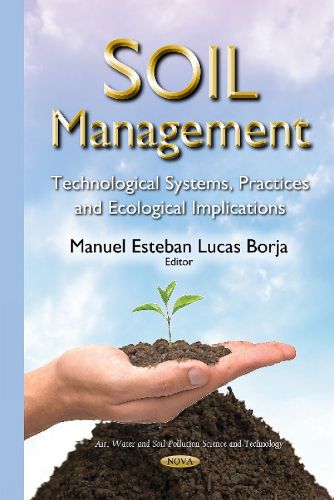Readings Newsletter
Become a Readings Member to make your shopping experience even easier.
Sign in or sign up for free!
You’re not far away from qualifying for FREE standard shipping within Australia
You’ve qualified for FREE standard shipping within Australia
The cart is loading…






Natural ecosystems provide the basic conditions without which humanity could not survive. Goods and services provided by ecosystems include, for example, provisions of food, fibre and fuel, purification of water and air, cultural and aesthetic benefits, stabilisation and moderation of the Earth’s climate, generation and renewal of soil fertility, including nutrient cycling or maintenance of genetic resources as key inputs to crop varieties and livestock breeds, medicines, and other products. However, the ability of natural ecosystems to continue performing these services is seriously threatened since the diversity of plant species and soil are being seriously deteriorated and, in some cases, destroyed. Various studies worldwide have shown that soils do not support intensive annual plant cultivation without fertiliser applications, and even these may not maintain sustainability. Inappropriate silvicultural operations (or the use of land for intensive agricultural purposes) is one of the main causes of soil degradation, and there is therefore worldwide interest in quantifying the loss of soil quality generated by incorrect agricultural operations or forest management practices. This can only happen if people have the right information, skills, and organisations for understanding and dealing with soil and plant diversity issues. The book shows different studies and research works on the topic of soil management, such us soil degradation, microbiological soil properties, bio-fertiliser soil applications, water dynamics in soil profile, soil erosion and sustainability of soils among others. Transferring information and knowledge within the society is crucial for fighting soil management and soil deterioration. In addition, promoting the sustainable use of soil quality will be of growing importance for maintaining society and biodiversity in the years and decades to come.
$9.00 standard shipping within Australia
FREE standard shipping within Australia for orders over $100.00
Express & International shipping calculated at checkout
Natural ecosystems provide the basic conditions without which humanity could not survive. Goods and services provided by ecosystems include, for example, provisions of food, fibre and fuel, purification of water and air, cultural and aesthetic benefits, stabilisation and moderation of the Earth’s climate, generation and renewal of soil fertility, including nutrient cycling or maintenance of genetic resources as key inputs to crop varieties and livestock breeds, medicines, and other products. However, the ability of natural ecosystems to continue performing these services is seriously threatened since the diversity of plant species and soil are being seriously deteriorated and, in some cases, destroyed. Various studies worldwide have shown that soils do not support intensive annual plant cultivation without fertiliser applications, and even these may not maintain sustainability. Inappropriate silvicultural operations (or the use of land for intensive agricultural purposes) is one of the main causes of soil degradation, and there is therefore worldwide interest in quantifying the loss of soil quality generated by incorrect agricultural operations or forest management practices. This can only happen if people have the right information, skills, and organisations for understanding and dealing with soil and plant diversity issues. The book shows different studies and research works on the topic of soil management, such us soil degradation, microbiological soil properties, bio-fertiliser soil applications, water dynamics in soil profile, soil erosion and sustainability of soils among others. Transferring information and knowledge within the society is crucial for fighting soil management and soil deterioration. In addition, promoting the sustainable use of soil quality will be of growing importance for maintaining society and biodiversity in the years and decades to come.